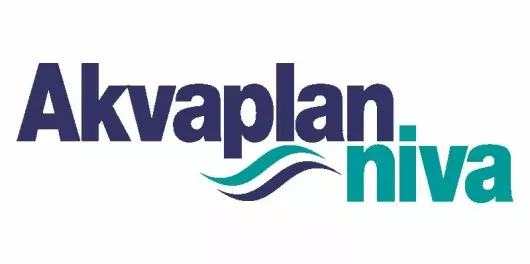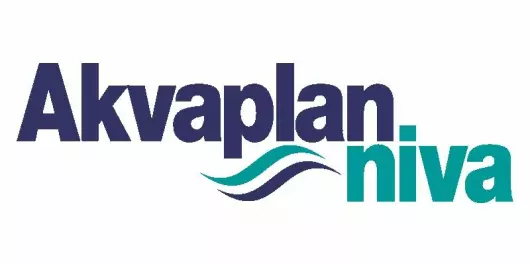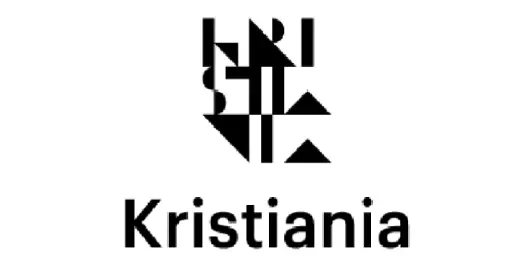Job description
Universitetet i Oslo
The University of Oslo is Norway’s oldest and highest rated institution of research and education with 28 000 students and 7000 employees. Its broad range of academic disciplines and internationally esteemed research communities make UiO an important contributor to society.
The Institute of Theoretical Astrophysics is part of the Faculty of Mathematics and Natural Sciences. It presently has 11 permanent professors/associate professors. The Institute employs some 15-20 postdoctoral and senior research fellows and has of order 15-20 Ph.D. students. The research activity of the Institute of Theoretical Astrophysics is concentrated around solar physics, cosmology and extragalactic astrophysics.
Five positions as PhD Research Fellow in cosmology and extragalactic astrophysics available at the Institute of Theoretical Astrophysics.
The fellowships period is up to 4 years, with 3 years devoted to research education. For some positions, the fourth year is optional, and, if selected, entails a compulsory work load of 25% that consists of teaching and supervision duties and research assistance.
No one can be appointed for more than one PhD Research Fellowship period at the University of Oslo.
Starting date no later than 01.10.2019.
More about the positions
Each PhD position is associated with one specific research project, as summarized below. Candidates may apply to one, several or (preferably) all of these positions through a single application, and should rank the positions in order of their preference in the cover letter. All applications will be reviewed in a joint selection process, taking into account the stated preferences of each candidate.
The available positions are dedicated to the following projects, listed in alphabetical order:
1) Breaking the degeneracy between dark matter, modified gravity and the neutrino mass with Euclid , supervised by Profs. Øystein Elgarøy (oystein.elgaroy@astro.uio.no) and David Mota (d.f.mota@astro.uio.no)
This position is funded by the Research Council of Norway. Its primary goal is to quantitatively understand, and break, the degeneracy between the effects of dark matter, modified gravity and massive neutrinos with upcoming data from ESA’s Euclid galaxy survey mission. This work will benefit from both strong theoretical and computational skills, as it will require construction of massive N-body simulations and development of tools to interpret these simulations. The successful candidate will become a member of the Euclid consortium, and active participation in an international research environment is expected. The duration of this position is either 3 or 4 years.
2) Constraining cosmology with cosmic voids and Euclidsupervised by Assoc. Prof. Hans Winther(hans.winther@astro.uio.no).
This position is funded by the Faculty of Mathematics and Natural Sciences of the University of Oslo, and is associated with ESA’s Euclid galaxy survey satellite mission. The main goals of the position are to understand how one can use cosmic voids in the galaxy distribution to constrain the parameters of our current cosmological model and to test alternative theories of modified gravity. The successful candidate will design, perform, and post-process simulations and mock galaxy catalogues to generate synthetic observations that can be confronted with observations from current and future galaxy surveys, in particular Euclid. Depending on the candidate’s qualifications, the project is also open to have a more theoretical side. The duration of this position is 4 years.
3) Cosmoglobe , supervised by Assoc. Prof. Ingunn Wehus (i.k.wehus@astro.uio.no)
This position is funded by the Faculty of Mathematics and Natural Sciences of the University of Oslo and is associated with an ERC Consolidator Grant called Cosmoglobe. The primary goal of Cosmoglobe is to develop a comprehensive astrophysical model of the microwave and sub-millimeter sky. This work will include analysis of multiple publicly available and proprietary data sets, including COMAP, DIRBE, FIRAS, Planck, PASIPHAE, SPIDER, WMAP and many others. Collaboration in large international collaborations is anticipated. The project requires strong computational skills, and applicants for this position are highly encouraged to submit a self-written computer code as part of their application material. The duration of this position is 4 years.
4) Exploring cold gas in the circumgalactic medium with multi-wavelength observations , supervised by Assoc. Prof. Claudia Cicone
This position is funded by the Faculty of Mathematics and Natural Sciences of the University of Oslo. The main goal of the position is to explore the nature of cold gas in the circumgalactic medium (CGM), and test current models of galaxy formation and evolution. The work will rely extensively on multi-wavelength observations, and the successful candidate will in particular use the Atacama Large Millimetre/sub-millimetre Array (ALMA). The candidate will work in close collaboration with the theoretical extra-galactic astronomy group to compare the data with hydrodynamical simulations of the CGM. The duration of this position is 4 years.
5) Time-domain Gibbs sampling , supervised by Prof. Hans Kristian Eriksen (h.k.k.eriksen@astro.uio.no)
This position is supported by two EU-funded projects called BeyondPlanck and Bits2Cosmology. These projects aim to perform end-to-end analysis of current and future CMB experiments, including Planck LFI, SPIDER, WMAP and LiteBIRD, and develop the world’s first time-domain Gibbs sampler. As such, the preferred candidates should have a strong computational background, and applicants for this position are highly encouraged to submit a self-written computer code as part of their application material. The duration of this position is either 3 or 4 years.
Qualification requirements
The Faculty of Mathematics and Natural Sciences has a strategic ambition of being a leading research faculty. Candidates for these fellowships will be selected in accordance with this, and expected to be in the upper segment of their class with respect to academic credentials.
- Master’s degree or equivalent in astronomy/astrophysics or a related discipline.
- Foreign completed degree (M.Sc.-level) corresponding to a minimum of four years in the Norwegian educational system
- Candidates without a Master’s degree have until 30 June, 2019 to complete the final exam
Documented English proficiency (minimum scores: TOEFL: 90, IELTS: 6.5, PTE Academic: 62, or Certificate in Advanced English (CAE) and Certificate of Proficiency in English (CPE)). The following applicants are exempt: EU/EEA countries, applicants with one year of completed university studies in Australia, Canada, Ireland, New Zealand, UK, USA, applicants with International Baccalaureate (IB) diplomas, applicants who have completed their bachelor's and/or master's degree with English as the language of instruction in one of the Nordic countries or the Netherlands. Applications lacking such documentation of English skills will not be processed.
Grade requirements:
The norm is as follows:
- the average grade point for courses included in the Bachelor’s degree must be C or better in the Norwegian educational system
- the average grade point for courses included in the Master’s degree must be B or better in the Norwegian educational system
- the Master’s thesis must have the grade B or better in the Norwegian educational system
- fluent oral and written communication skills in English
http://www.mn.uio.no/english/research/phd/application/application.html
We offer
- Salary NOK 449 400 – 505 800 per annum depending on qualifications and seniority as PhD Research Fellow, (position code 1017)
- Attractive welfare benefits and a generous pension agreement, in addition to Oslo’s family-friendly environment with its rich opportunities for culture and outdoor activities
- Vibrant international academic environment
- Oslo’s family-friendly surroundings with their rich opportunities for culture and outdoor activities
How to apply
The application must include:
- Cover letter. Statement of motivation and research interests. Important: Include a ranked order of preference for the positions.
- CV (summarizing education, positions and academic work - scientific publications)
- Copies of educational certificates, and transcript of records
- Documentation of English proficiency
- List of publications and academic work that the applicant wishes to be considered by the evaluation committee
- Names and contact details of 2-3 references (name, relation to candidate, e-mail and telephone number). In addition, arrange for each of the references to submit their letters to Prof. Hans Kristian Eriksen (chair of cosmology section, h.k.k.eriksen@astro.uio.no) before the deadline.
- For relevant positions, attach a transcript of a self-written computer program. Link to a GitHub repository or similar is welcome.
The application with attachments must be delivered in our electronic recruiting system, please follow the link “Apply for this job”. Foreign applicants are advised to attach an explanation of their University's grading system. Please note that all documents should be in English (or a Scandinavian language).
Applicants may be called in for an interview.
Formal regulations
Please see the guidelines and regulations for appointments to Research Fellowships at the University of Oslo.
The purpose of the fellowship is research training leading to the successful completion of a PhD degree.
The fellowship requires admission to the PhD program at the Faculty of Mathematics and Natural Sciences. The application to the PhD program must be submitted to the department no later than two months after taking up the position. For more information see:
http://www.mn.uio.no/english/research/phd/
According to the Norwegian Freedom and Information Act (Offentleglova) information about the applicant may be included in the public applicant list, also in cases where the applicant has requested non-disclosure.
The appointment may be shortened/given a more limited scope within the framework of the applicable guidelines on account of any previous employment in academic positions.
The University of Oslo has an agreement for all employees, aiming to secure rights to research results etc.
Contact information
For general information, please contact:
- Prof. Hans Kristian Eriksen (chair of cosmology section, h.k.k.eriksen@astro.uio.no)
For project specific information, please contact the respective project supervisors:
1) Modified gravity and neutrinos: Øystein Elgarøy (oystein.elgaroy@astro.uio.no)
David Mota (d.f.mota@astro.uio.no)
2) Cosmic voids: Hans Winther (hans.a.winther@gmail.com)
3) Cosmoglobe: Ingunn Wehus (i.k.wehus@astro.uio.no)
4) Cold gas in the CGM: Claudia Cicone (claudia.cicone@inaf.it)
5) Time-domain Gibbs sampling: Hans Kristian Eriksen (h.k.k.eriksen@astro.uio.no)
For technical questions regarding the application system, please contact HR Adviser Elin Thoresen, +47 22 85 71 96, e-mail: elin.thoresen@mn.uio.no
Apply for this job














